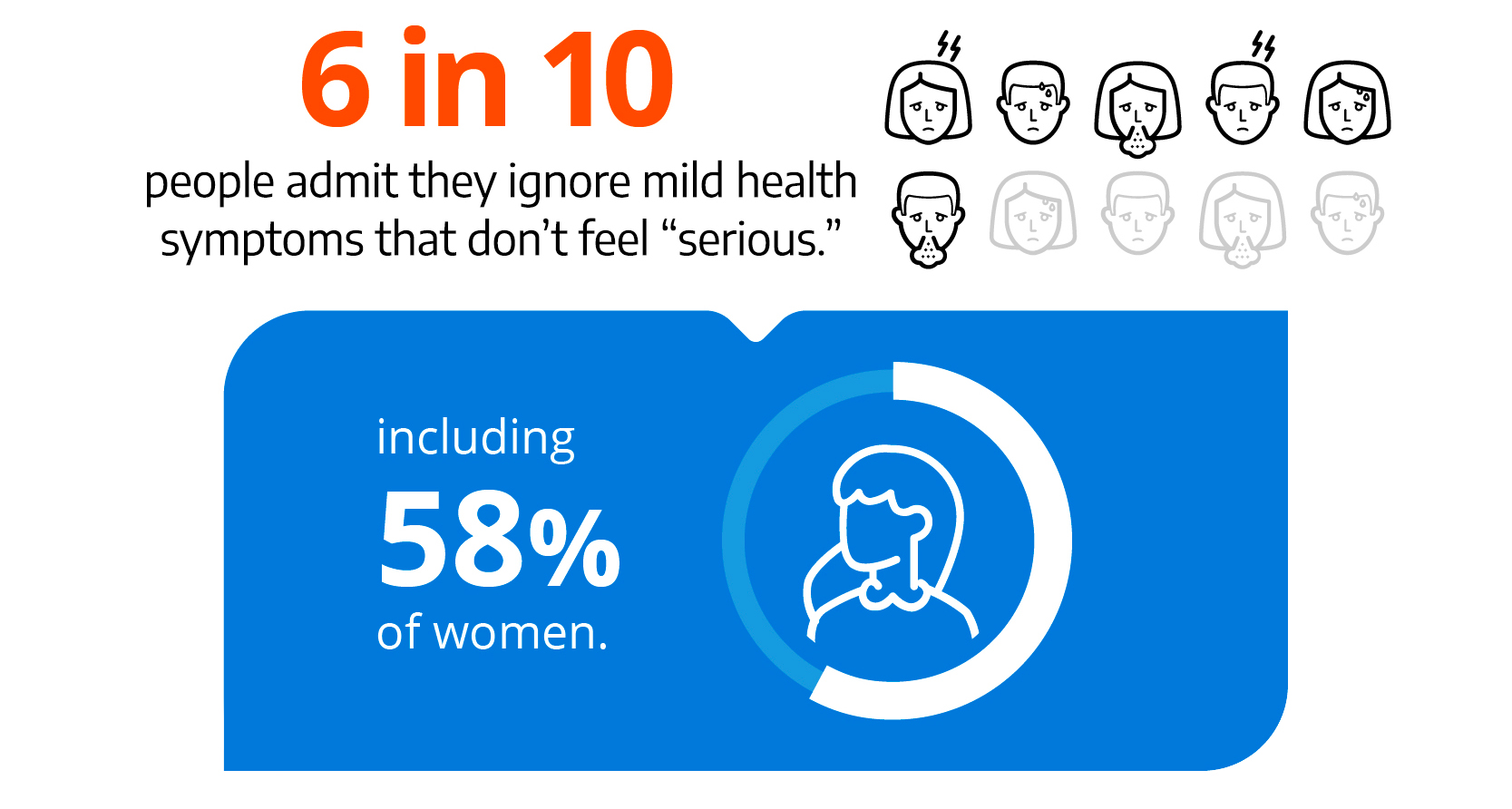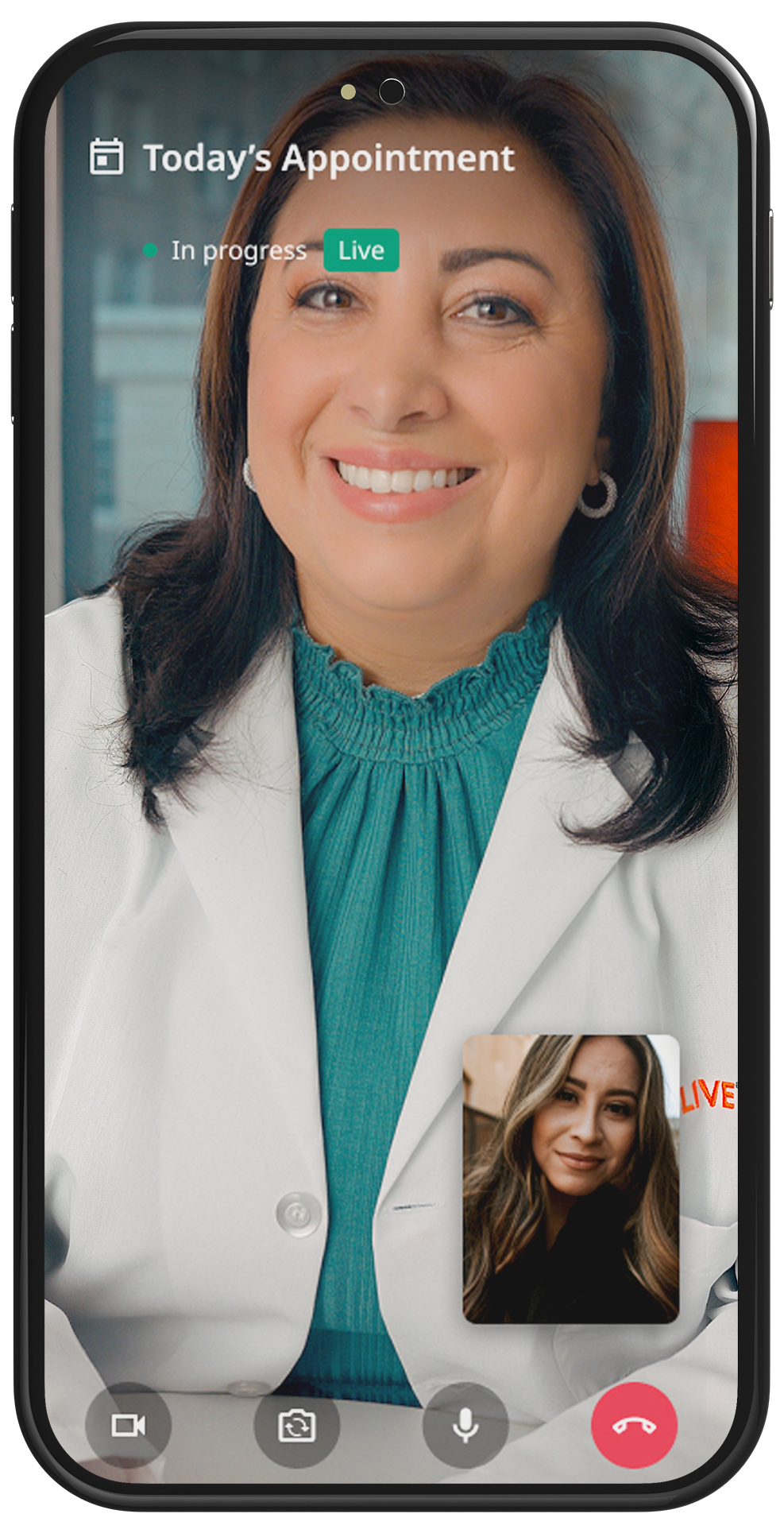learning to trust your health instincts.
and how to advocate for yourself.
We’ve all had a moment when something didn’t feel right with our bodies, from nagging fatigue, brain fog, weight changes, or a racing heartbeat that caught us off guard. Too often, though, women second-guess their symptoms, chalking them up to stress, aging, or nothing to worry about.
But what happens when our confidence doesn’t always match reality?
The majority of women surveyed, despite their confidence, missed the telltale symptoms of common conditions that often show up differently for women—from cardiovascular disease and thyroid imbalances to ADHD.
The knowledge gap in women’s health—specifically, the lack of awareness around how common conditions appear differently in women makes it difficult for people to trust what they’re experiencing. Until recently, healthcare systems and research studies have primarily focused on male symptoms—leaving women’s unique experiences underrepresented or, worse, dismissed.1 In fact, it wasn’t until 1993, after Congress passed a law in the US, that women were mandatorily included in clinical research.2
So why are symptoms still getting overlooked in women?
Our research revealed several insights into the reasons why:
- 46% of women believe gender stereotypes influence how their symptoms are perceived, i.e., being told their symptoms were “normal” for their gender.
- More than half (54%) say there’s too much contradictory information about women’s health.
- 70% said there isn’t enough information about how common conditions may manifest differently in women.
- Many women cite rushed appointments, longer waits for accurate diagnosis, and lack of follow-up as reasons they don’t get the care they need.
The cost of missed symptoms.
When symptoms don’t fit the expected mold, they’re easy to overlook—and hard to diagnose. More than 25% of women say they experienced confusion or issues with their diagnosis that later turned out to be something more serious. It’s a reminder that even when symptoms seem small, they may deserve a second look. Trusting their intuition can help women avoid more serious health issues later on.
Dr. Maggie Williams urges women to speak up.
Dr. Maggie Williams, a practicing doctor and MD Live Medical Director of Primary Care, has repeatedly seen this dynamic play out. “When symptoms are vague, dismissed, or misunderstood—especially those that show up differently in women—it creates the perfect storm for misdiagnosis. That’s why it’s so important to talk to a board-certified provider who understands those differences, listens without bias, and knows what questions to ask.”
How to spot the signals—and advocate for yourself.
Here are three simple ways Dr. Williams suggests to help women take charge of their health:
Get the care you deserve.
Even if a symptom seems small, it could be your body’s way of telling you something bigger is happening. Small signals can be easily ignored or misinterpreted, especially when juggling work, family, and life responsibilities.
MD Live makes getting the care you need at every stage easier, with convenient access to doctors who can properly assess your symptoms.
We put your care within easy reach, offering you:
Not sure which type of care you need?
Start with MD Live Urgent Care for a visit with a board-certified doctor who can assess your symptoms and refer you to one of our other services if needed.
Posted date: April 21, 2025






